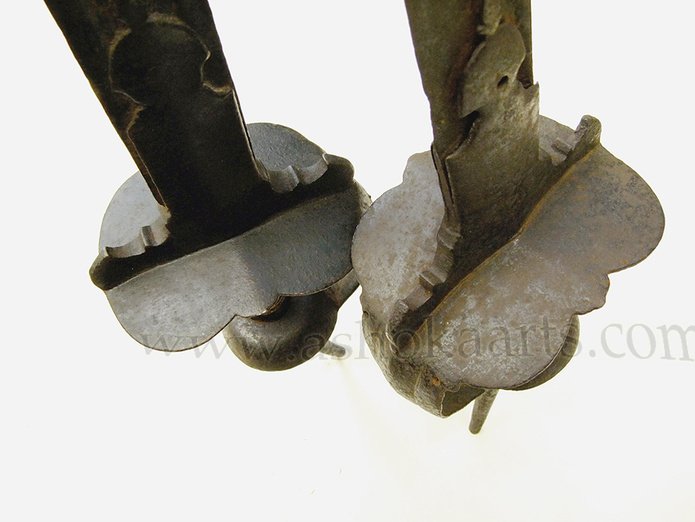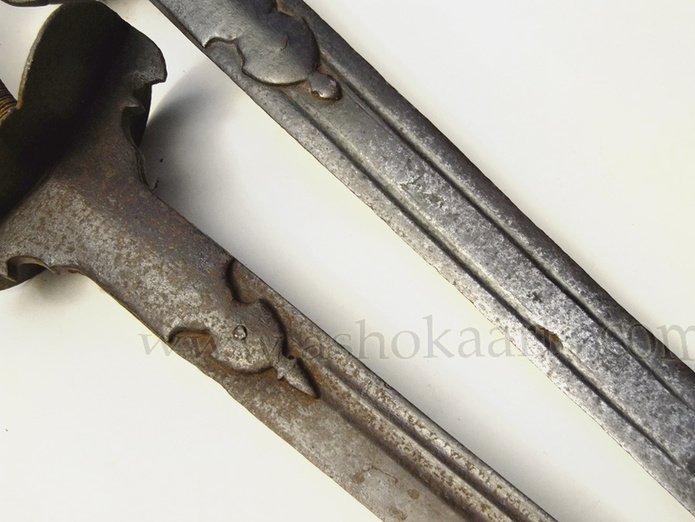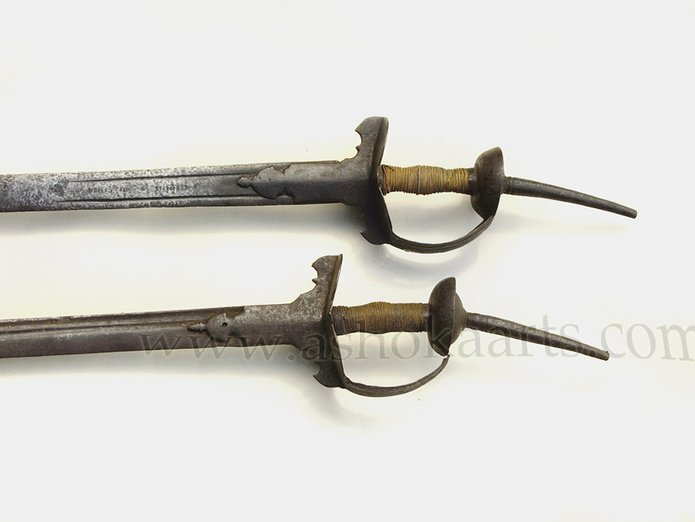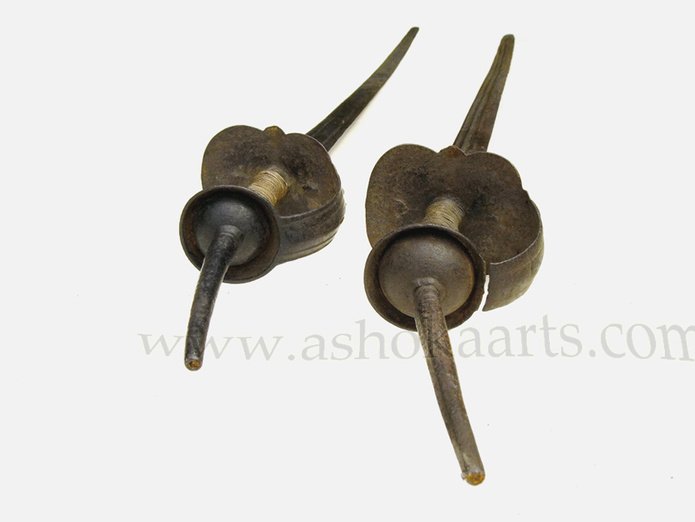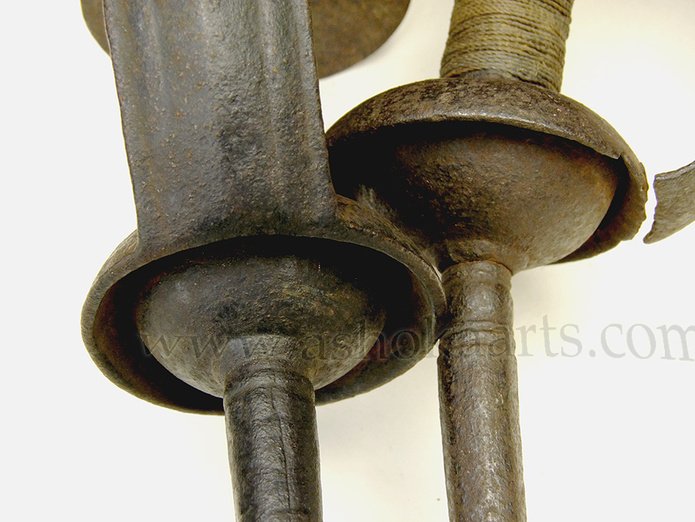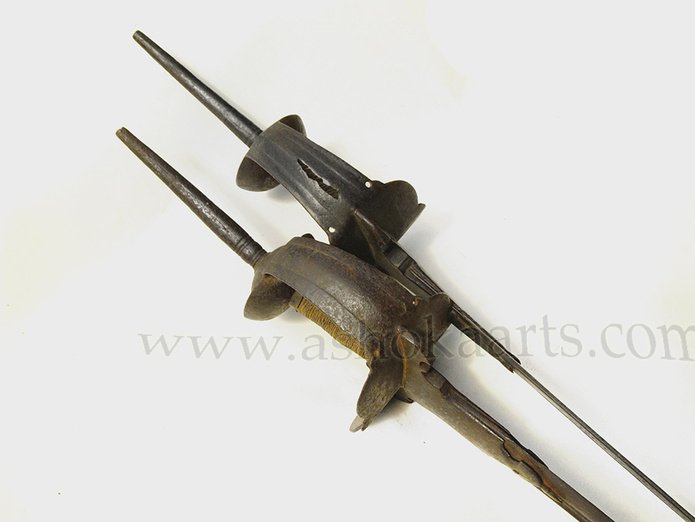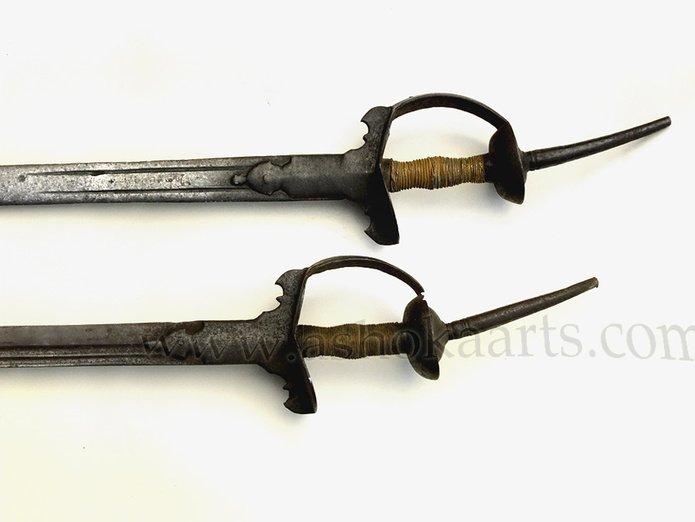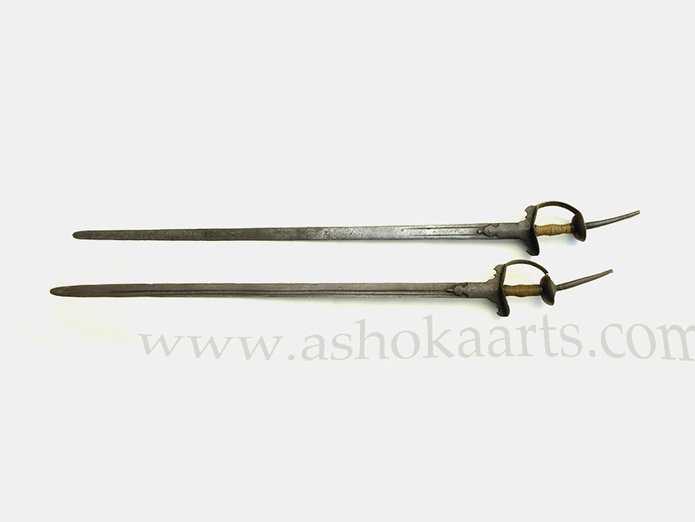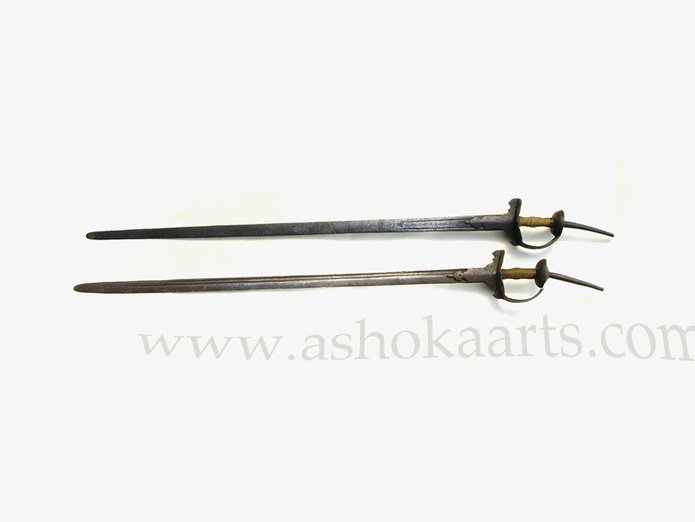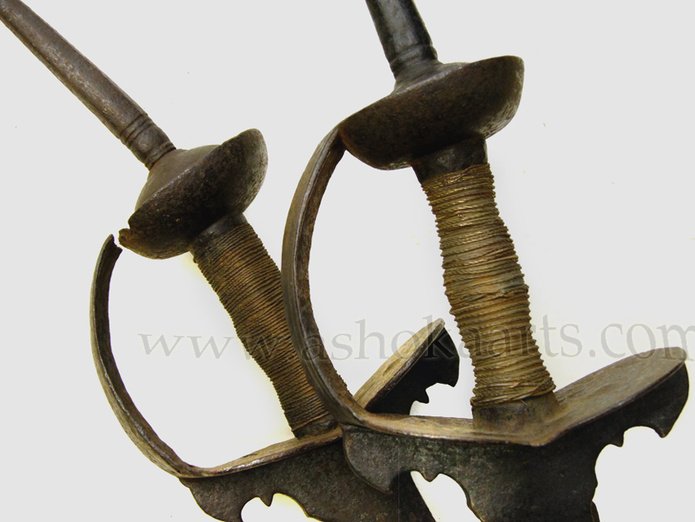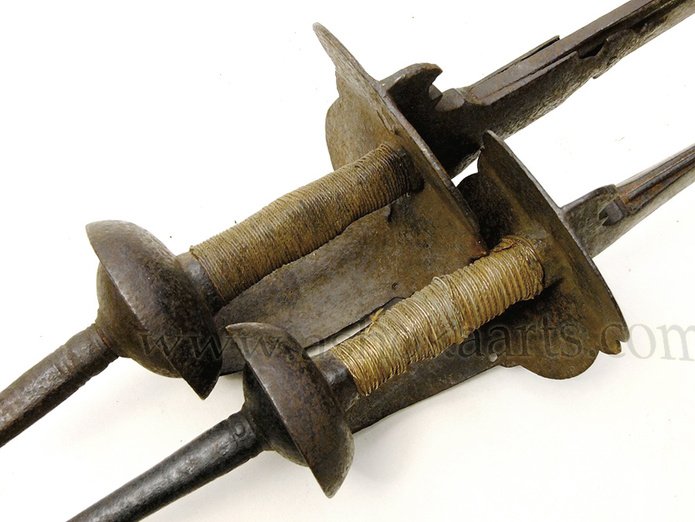Two nice full length Deccan ‘Firangi’ swords, otherwise known as Khandas.These early broadswords are true ‘Firangi’s’ as they are both fitted with very long European steel blades, firangi meaning ‘foreign/er’. Both are in nice original condition not overcleaned or shortened as is frequently the case. The extreme length of their blades (40/41 inches) shows their intended use for horseback, similar blades would have been mounted into Patahs ( Gauntlet swords). The use of european blades was fashionable at this period and blade length, stamps must have been a prestige factor, occasionally rapier blades are found, German, Italian and Spanish blades were all popular. In this instance the longer blade is marked with fullers, crosses and several characters ‘clemens’ being the only legible word, presumably a ‘Clemens’ working in Solingen late 16th/early 17th century. The other blade is also probably German although unmarked, the single edged fullered blade with a long sharpened back edge of about a foot. Both hilts have deeply rounded dished pommels and unusually long spikes to the pommel which supposedly allowed for two-handed use when necessary. One sword has a slight separation of the broad handguard from the pommel rim, the other sword has a hole worn through the centre of this guard. Both grips bound, with iron and metallic gold thread. These swords date to the early 17th century, a period of turmoil and conflict in the Deccan with aggression from both the Mughals from the North, and the Mahrattas from the West. Longest length nearly 51 inches, the blades approximately 41 and 40 inches respectively. indo persian
